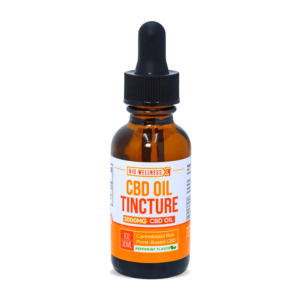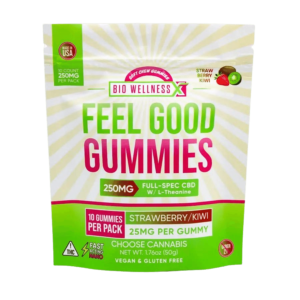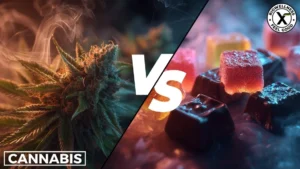key points
Cannabis affects individuals in various ways, influenced by factors such as personal biology, the quality of the cannabis used, how it’s consumed, and the context of its use. Research indicates that most cannabis users use it in moderation. This is partly due to its lower risk of addiction compared to other substances.
While scientific understanding is still evolving, researchers are increasingly uncovering the physiological effects of cannabis on the human body.
When discussing cannabis, many associate it with the psychoactive “high” caused by THC (tetrahydrocannabinol), the most prevalent cannabinoid in the cannabis plant. Within the CBD industry, the debate continues about the role of THC in cannabis products. Some argue for the benefits of THC-free alternatives, while others believe in the therapeutic potential of THC-containing products.
What Does THC Free Mean?
CBD, short for cannabidiol, is the predominant cannabinoid naturally occurring in the hemp plant. Cannabinoids are compounds extracted from cannabis, whether occurring naturally or synthetically.
“THC-free” usually means that a CBD product contains absolutely no THC at detectable or quantifiable levels. This term is used in CBD circles to describe products that have been carefully processed to remove THC, though it’s practically impossible to achieve 0% THC due to varying extraction methods.
Products labeled as “THC-free” or “broad spectrum” are typically just CBD products without THC. Some products may differ, like CBG isolate or CBN isolate, but in general – it’s a cannabinoid product without any detectable levels of Delta-9 THC. The goal behind removing THC is to avoid its potential effects on memory, decision-making, and time perception, which can impair cognitive functions such as driving or operating machinery.
Many countries worldwide prohibit cannabis products containing THC for these reasons. In the United States, for instance, the legal limit for THC in cannabis products is 0.3% or less, but this threshold can differ by state.
Types of THC-Free Cannabinoids
THC-free cannabinoids refer to compounds derived from the cannabis plant that do not contain tetrahydrocannabinol (THC), the psychoactive component responsible for the “high” associated with traditional weed. Here are a few types of THC-free cannabinoids:
Cannabidiol (CBD):
CBD is the most well-known cannabinoid after THC. It is found abundantly in hemp plants and is legal federally when derived from hemp containing less than 0.3% THC. CBD is renowned for its potential therapeutic effects without causing intoxication.
Cannabigerol (CBG):
CBG is another non-intoxicating cannabinoid that is gaining attention for its potential health benefits. It is considered a precursor to other cannabinoids like CBD and THC, and it is typically found in smaller quantities in cannabis plants compared to CBD.
Cannabinol (CBN):
CBN is a cannabinoid that is formed from the degradation of THC over time when exposed to oxygen or heat. It is mildly psychoactive but typically found in trace amounts in cannabis plants. CBN is being studied for its potential sedative effects.
Cannabichromene (CBC):
CBC is a non-intoxicating cannabinoid that may contribute to the overall therapeutic effects of cannabis. It interacts with the body’s endocannabinoid system but does not produce a high.
These THC-free cannabinoids are being researched for their potential therapeutic properties, ranging from pain relief and inflammation reduction to anxiety management and neuroprotection. They offer an alternative for individuals seeking the potential health benefits of cannabinoids without the psychoactive effects associated with THC.
Types of THC Free, Low THC, or Full Spectrum CBD in the Market
CBD (cannabidiol) comes in several types, and it’s important to understand the distinctions, particularly regarding THC content:
CBD Isolate:
This type of CBD is the purest form available, typically extracted from hemp and refined to remove all other cannabinoids and plant compounds. CBD isolate is THC-free, meaning it contains no detectable THC at all.
Full-Spectrum CBD:
This type of CBD contains a wide range of cannabinoids, including THC (up to the legal limit of 0.3% THC in hemp-derived products). Full-spectrum CBD also retains other beneficial compounds like terpenes and flavonoids, which may enhance the therapeutic effects through what is known as the “entourage effect.”
Broad-Spectrum CBD:
Broad-spectrum CBD is similar to full-spectrum but with one crucial difference: it undergoes additional processing to remove any detectable THC while retaining other cannabinoids and beneficial compounds. This type of CBD offers the potential benefits of multiple cannabinoids without the risk of THC-induced intoxication. Although the THC is non-detectable, it doesn’t mean it’s completely THC-free; the amount of THC is just so tiny it can hardly be seen.
Among these types, CBD isolate is the only one guaranteed to be completely THC-free. Full-spectrum CBD contains trace amounts of THC (below the legal limit), while broad-spectrum CBD removes even those traces, or at least the majority of them. The choice between these types often depends on personal preference and sensitivity to THC, as well as the desired effects and potential benefits of other cannabinoids and plant compounds present in the product.
Benefits of Using THC-Free CBD Oils
Stress-Free Drug Testing
One of the main reasons people opt for THC-free CBD oil is to avoid the risk of failing a drug test. While even large doses of THC may not cause a high, THC can accumulate in body fat. Prolonged use of full-spectrum CBD oils could result in a buildup of metabolites, which may be an issue during drug tests for cannabis use. To prevent this, choose a CBD oil without THC.
Ideal for THC Sensitivity
Though rare, some individuals experience adverse effects from THC, even in hemp-derived CBD oils. If you are sensitive to THC, opting for high-quality, zero-THC gummies or oils might be the best choice. If using CBD oil for therapeutic purposes, consult your healthcare provider about any potential interactions with THC.
Cost-Effective
CBD isolates start as whole plant extracts that are further processed to remove other cannabinoids, terpenes, and plant esters, leaving only CBD. Since manufacturers don’t need to preserve sensitive cannabinoids and terpenes, they can produce CBD isolates on a larger scale, resulting in a fine crystal often sold in bulk. While CBD isolates may be more budget-friendly, it’s important to research thoroughly as they can sometimes be over-processed.
Final Thoughts: What Does THC Free Mean?
THC-free CBD products are designed to provide the benefits of cannabis without the psychoactive effects of THC. These products, like broad-spectrum CBD products, are particularly useful for individuals who need to pass drug tests, those who are sensitive to THC, and those looking for a cost-effective option. Understanding the different types of CBD—isolates, full-spectrum, and broad-spectrum—can help consumers make informed choices based on their personal needs and preferences. As research continues to evolve, the therapeutic potential of various cannabinoids, including CBD, CBG, CBN, and CBC, offers promising alternatives for health and wellness without the high associated with THC.

Legal Disclaimer:
By reading this information presented, you agree to release the author of any liability that comes from using this data. This post contains no legal advice. Claims about cannabinoids have not yet been approved by the FDA. Read the full legal disclaimer here.
Other Articles About THC Gummies
- Microdosing Delta-9 THC: The Complete Guide
- Microdosing Delta-8 THC: The Full Guide
- Delta-8 vs Delta-10 for Pain
- Delta-8 Gummies for Sleep and How They Work
- How Long Does THC Stay In Your System
- Are THC Gummies Legal in 2023?
- What’s the Difference Between Delta-8 and Delta-9?
- Delta-10 THC Vs. Delta-9 THC: Key Differences & What To Buy?
- Delta-9 THC Gummies for Energy: Do They Work?
- Does Delta-9 Get You High?
- Free Delta-8 Samples – Get Free Samples With BioWellnessX
- Free Delta-9 Samples Are Now Available At BioWellnessX!
- Get Your Free THCa Flower Sample: Benefits And Where To Find It
References:
- Farm Bill- Hemp Production and the 2018 Farm Bill – 07/25/2019 | FDA
- Controlled Substances Act- The Controlled Substances Act (dea.gov)
- Forbes – 9 Science-Backed Benefits of Hemp Oil
- Mayo Clinic – CBD: Safe and Effective?
- National Institutes of Health: Cannabis and Cannabinoids: What You Need to Know
FAQs About THC Free and Low THC Products
Full-spectrum CBD, also known as whole-plant extracts, contains only trace amounts of THC — up to 0.3%.
No, THC-free CBD oil should not cause a failed drug test, as it contains no detectable levels of THC, which is the compound typically screened for in drug tests.
Yes, broad-spectrum and some other THC-free CBD oils can contain other non-psychoactive cannabinoids, contributing to their potential health benefits.
Pure CBD oil is one of the cleanest cannabis products out there. Find a CBD oil that is pure isolate, like BioWellnessX CBD Oil. No other cannabinoids, just pure CBD in it’s most potent form.









